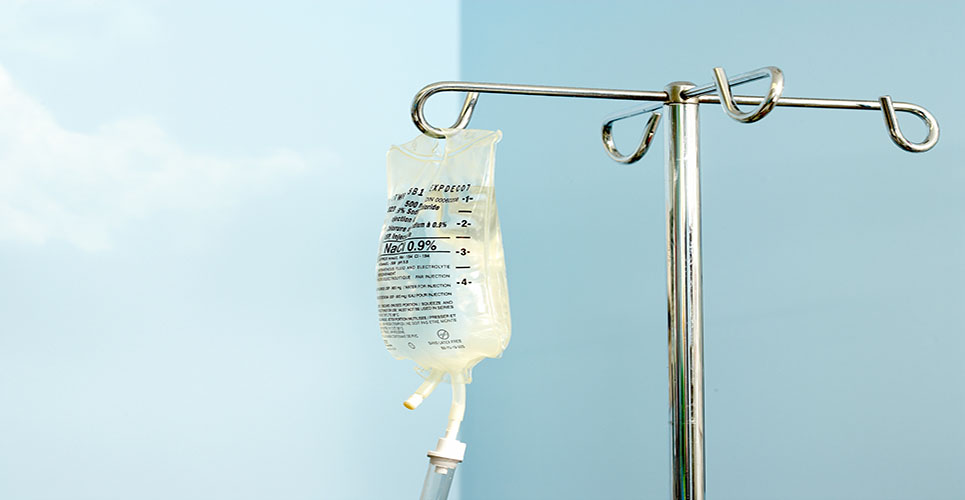The European Medicines Agency’s Pharmacovigilance Risk Assessment Committee (PRAC) has concluded following a review of the available evidence that the benefits of infusion solutions containing hydroxyethyl-starch (HES) no longer outweigh their risks and therefore recommended that the marketing authorisations for these medicines be suspended.
The European Medicines Agency’s Pharmacovigilance Risk Assessment Committee (PRAC) has concluded following a review of the available evidence that the benefits of infusion solutions containing hydroxyethyl-starch (HES) no longer outweigh their risks and therefore recommended that the marketing authorisations for these medicines be suspended.
Infusion solutions containing HES are medicines mainly used to replace lost blood volume in hypovolaemia (low blood volume caused by dehydration or blood loss) and hypovolaemic shock (a steep fall in blood pressure caused by drop in blood volume). They are used in critically ill patients including patients with sepsis (bacterial infection of the blood) or burn or trauma injuries, or patients who are undergoing surgery.
The review of infusion solutions containing HES was triggered by the German medicines agency, the Federal Institute for Drugs and Medical Devices (BfArM), following three recent studies(1–3) that compared HES with other products used for volume replacement called crystalloids in critically ill patients. The studies showed that patients with severe sepsis treated with HES were at a greater risk of kidney injury requiring dialysis. Two of the studies(1,2) also showed that in patients treated with HES there was a greater risk of mortality. The PRAC was therefore requested to assess the available evidence and how it impacts on the risk-benefit balance of HES infusion solutions in the management of hypovolaemia and hypovolaemic shock.
The PRAC assessed data from the scientific literature and the data submitted by the companies, and took advice from a group of external experts. The PRAC was of the opinion that, when compared with crystalloids, patients treated with HES were at a greater risk of kidney injury requiring dialysis and had a greater risk of mortality. The PRAC also considered that the available data only showed a limited benefit of HES in hypovolaemia, which did not justify its use considering the known risks. The PRAC therefore concluded that the marketing authorisations for these medicines be suspended.
The suspension should remain in place unless the marketing authorisation holder can provide convincing data to identify a group of patients in whom the benefits of the medicines outweigh their risks.
The PRAC recommendation will be considered by the Coordination Group for Mutual Recognition and Decentralised Procedures – Human (CMDh).
More about the medicine
Infusion solutions containing HES are frequently used for volume replacement and belong to the class known as colloids. There are two main types of medicines used for volume replacement: crystalloids and colloids. Colloids contain large molecules such as starch, whereas crystalloids, such as saline (salt) solutions or Ringer acetate, contain smaller molecules. In the European Union (EU), HES-containing solutions for infusion have been approved via national procedures and are available in all Member States under various trade names.
More about the procedure
The review of HES solutions for infusion was initiated on 29 November 2012 at the request of the German medicines agency, under Article 31 of Directive 2001/83/EC.
The review has been carried out by the Pharmacovigilance Risk Assessment Committee (PRAC), the Committee responsible for the evaluation of safety issues for human medicines, which has made a set of recommendations. The marketing authorisation holders may request a re-examination within 15 days of being notified of the PRAC recommendation.
As these medicines are all authorised nationally, the PRAC recommendation will now be forwarded to the Co-ordination Group for Mutual Recognition and Decentralised Procedures – Human (CMDh), which will adopt a final position. The CMDh is a medicines regulatory body representing the EU Member States.
If the CMDh position is agreed by consensus, the agreement will be directly implemented by the Member States where the medicines are authorised. Should the CMDh position be adopted by majority vote, the CMDh position will be sent to the European Commission, for the adoption of an EU-wide legally binding decision.
Refererences
- Perner, A. et al. Hydroxyethyl Starch 130/0.42 versus Ringer’s acetate in severe sepsis. N Engl J Med 2012; 367(2):124-134.
- Brunkhorst, F.M. et al. Intensive insulin therapy and pentastarch resuscitation in severe sepsis. N Engl J Med, 2008; 358(2):125-39.
- Myburgh, J.A. et al. Hydroxyethyl starch or saline for fluid resuscitation in intensive care. N Engl J Med 2012; 367(20):1901-11.

